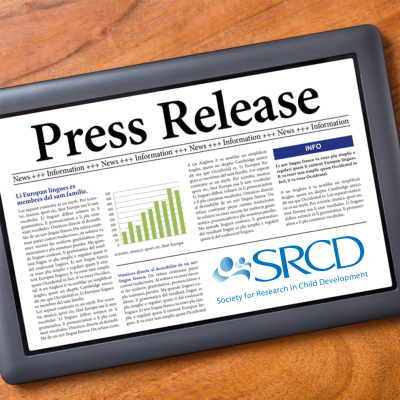Time With Parents Is Important for Teens' Well-Being
PRESS RELEASE / CHILD DEVELOPMENT: Embargoed for Release on August 21, 2012
It’s thought that children grow increasingly distant and independent from their parents during their teen years. But a new longitudinal study has found that spending time with parents is important to teens’ well-being.
The study, conducted at the Pennsylvania State University, appears in the journal Child Development.
Researchers studied whether the stereotype of teens growing apart from their parents and spending less time with them captured the everyday experiences of families by examining changes in the amount of time youths spent with their parents from early to late adolescence. On five occasions over seven years, they conducted home and phone interviews with moms, dads, and the two oldest children in almost 200 White, middle- and working-class families living in small cities, towns, and rural communities. At the start of the study, the oldest children were about 11 and the second oldest were about 8.
During the home interviews, teens reported on their social skills with peers and their general sense of self-worth. In the two to three weeks following each home visit, the researchers also conducted a series of seven nightly phone interviews, asking teens about their activities during the day of the call, including who participated in the activities with them.
According to youths’ reports of their daily time, although parent-teen time when others were also present declined from the early to late teen years, parent-teen time with just the parent and the teen present actually increased in early and middle adolescence—a finding that contradicts the stereotype of teens growing apart from their parents.
“This suggests that, while adolescents become more separate from their families, they continue to have one-on-one opportunities to maintain close relationships with their parents,” according to Susan McHale, professor of human development and director of the Social Science Research Institute at the Pennsylvania State University, who coauthored the study.
Furthermore, teens who spent more time with their dads with others present had better social skills with peers, and teens who spent more time alone with their dads had better general self-worth, according to the study.
The study also found that the decline in the time teens spent with parents and others was less pronounced for second-born than for first-born siblings. And it found that both moms and dads spent more time alone with a child of their same sex when they had both a daughter and a son.
The study was funded by the Eunice Kennedy Shriver National Institute of Child Health and Human Development.
###
Summarized from Child Development, Volume 84, Issue 1, Parent-Child Shared Time From Middle Childhood to Late Adolescence: Developmental Course and Adjustment Correlates by Lam, CB, McHale, SM, and Crouter, AC (The Pennsylvania State University). Copyright 2012 The Society for Research in Child Development, Inc. All rights reserved.


